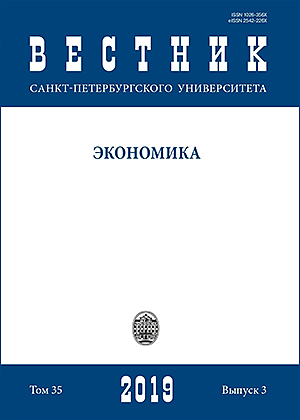Moral Economies: Possibilities for a New Framework of Economic Structure and Change
DOI:
https://doi.org/10.21638/spbu05.2019.301Abstract
This article addresses a long-held dispute across social science disciplines: that market and moral economies are distinctly different and even contradictory. This debate was never resolved, and was also problematic, as both sides did not address either competing claims, not empirical reality, with sufficient rigor and care. I suggest revisiting the original Scott-Popkin debate afresh, while exploring whether moral and market economy explanations are complementary, rather than contradictory. I posit that market and moral economies, as phenomena, are intertwined, and that a proper approach treats both framing (norms) and decisions (calcu-lation) as embedded in fields. Actors have historically articulated moral economies of norms as well as interests, thus underpinning market and other economies. The author posits three possibilities for a future framework of moral economy: moral economies as transformative; moral economies as anchored in concrete entities, rather than as free-floating norms; and moral economies as multiple, embedded in field contexts. Using these approaches to moral economy, I give brief examples of economic transformations that involved not only interests and markets, but also moral claims.
Keywords:
moral economy, economic development, interests, norms, fields, economic history
Downloads
References
References in Latin Alphabet
Downloads
Published
How to Cite
Issue
Section
License
Articles of the St Petersburg University Journal of Economic Studies are open access distributed under the terms of the License Agreement with Saint Petersburg State University, which permits to the authors unrestricted distribution and self-archiving free of charge.







